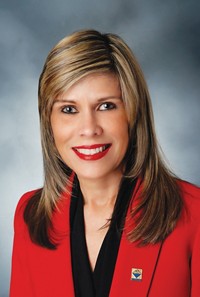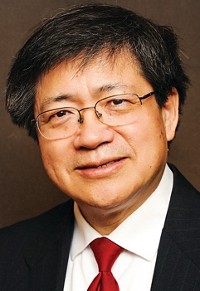Advertisement
Grab your lab coat. Let's get started
Welcome!
Welcome!
Create an account below to get 6 C&EN articles per month, receive newsletters and more - all free.
It seems this is your first time logging in online. Please enter the following information to continue.
As an ACS member you automatically get access to this site. All we need is few more details to create your reading experience.
Not you? Sign in with a different account.
Not you? Sign in with a different account.
ERROR 1
ERROR 1
ERROR 2
ERROR 2
ERROR 2
ERROR 2
ERROR 2
Password and Confirm password must match.
If you have an ACS member number, please enter it here so we can link this account to your membership. (optional)
ERROR 2
ACS values your privacy. By submitting your information, you are gaining access to C&EN and subscribing to our weekly newsletter. We use the information you provide to make your reading experience better, and we will never sell your data to third party members.
Policy
ACS's Strategic Relationships
by James D. Burke, Chair, Board of Directors
November 13, 2006
| A version of this story appeared in
Volume 84, Issue 46

The American Chemical Society has long been a successful organization because of our capable staff and our member volunteers who generously donate their time and talents. From the outset, we have accomplished much entirely on our own. However, in recent years, multidisciplinarity and globalization in research and manufacturing have offered ACS powerful incentives to collaborate with other organizations. To ensure benefit to the society and its members, the ACS Board requires that every external relationship must visibly support the ACS mission. I want to highlight some of these key relationships and indicate how they benefit ACS.
Advancing the chemical sciences offers many opportunities for partnerships. For example, in cancer research, where chemistry plays a critical role in research on cancer diagnosis, prevention, and treatment, ACS and the American Association for Cancer Research have organized a special joint conference in February 2007. It will provide a forum to foster increased discussion and cooperation among chemists with interests in cancer research, including career opportunities for young chemists.
In the emerging field of organic microelectronics, ACS has agreed with the Institute of Electrical & Electronic Engineers (IEEE) and the Materials Research Society (MRS) to sponsor an annual workshop. Its goal is to build an interdisciplinary community of chemists, materials scientists, physicists, and engineers from industry and academia who will collaborate and accelerate innovation. IEEE and MRS already cosponsor technical programs at ACS national and regional meetings.
ACS and the American Institute of Chemical Engineers (AIChE) have a solid relationship, and we regularly seek ways to collaborate for our members' benefit. AIChE and ACS members participate in one another's local and national meetings. In 2008, we will colocate our spring national meetings in New Orleans, with some technical programming and social events in common.
ACS works with other organizations to promote careers in the chemical sciences. Many companies contribute substantial funds to support ACS Scholars and Project SEED. The American Chemistry Council has asked its member companies to support Project SEED. The ACS/Pharma Leaders group is developing programs to promote careers for chemical scientists in the pharmaceutical and biotechnology industries.
ACS actively promotes greater funding for research. We are respected for our work in advocating increased funding for NSF, the DOE Office of Science, NIST, and NIH. The ACS Congressional Visits and Legislative Action Network programs have also been effective. But although basic research in science and engineering is well-recognized as our nation's best source of innovative technologies, it remains chronically underfunded. To reverse the situation, ACS will seek to engage more partners from the physics, biology, and engineering communities.
Chemical Abstracts Service and ACS Publications represent major society commitments to increasing and communicating chemical knowledge. ACS recognizes how critically important are the integrity and reliability of the scientific literature. Thus, ACS Publications is working with the American Association of Scientific Publishers to generate a proper framework and outcome for the debate about "open access," online publishing, and related topics.
ACS is increasing its support of science instruction in primary and secondary schools. ACS recently teamed with the Jason Academy, a subsidiary of the National Geographic Society, to offer online graduate-level courses and inquiry-based physical science activities to third- through eighth-grade teachers. Building on the ACS Journal of Chemical Education's digital library effort, ACS has partnered with the University of Wisconsin, Madison, and Carnegie Mellon University to develop a new digital portal as part of the National Science Digital Library project, a Web-based network of science education resources.
ACS also pursues common interests with other chemical societies. At a recent meeting in Japan, the presidents of the chemical societies of six prominent countries listed the major challenges that their organizations face. We realized that everyone had the same list, differing only in priorities.
Since then, ACS and the Royal Society of Chemistry (RSC) have deepened our relationship. We share ideas on increasing governmental funding for research. We are beginning a joint project to develop better instructional materials for high school science teachers. In addition, ACS, the German Chemical Society, and RSC now cosponsor a biennial conference of our most promising younger organic chemists to promote greater collaboration.
In the early 1980s, the Chemical Society of Japan and ACS founded the Pacifichem Conference to promote chemical research in the Pacific Rim countries. As Pacifichem has grown in stature, it has added the chemical societies of Canada, South Korea, Australia, New Zealand, and China to its organizing committee. Earlier this year, ACS and the Chinese Chemical Society agreed to cooperate on developing new resources for high school science teachers. Last January, ACS cosponsored a major conference with chemical scientists in India.
The need for professional societies to pursue alliances and maintain partnerships will surely increase as the scientific disciplines continue to merge in interdisciplinary research and manufacturing around the world. ACS will be continually challenged to create and manage an appropriate portfolio of vital relationships with other like-minded organizations.
Views expressed on this page are those of the author and not necessarily those of ACS.








Join the conversation
Contact the reporter
Submit a Letter to the Editor for publication
Engage with us on Twitter